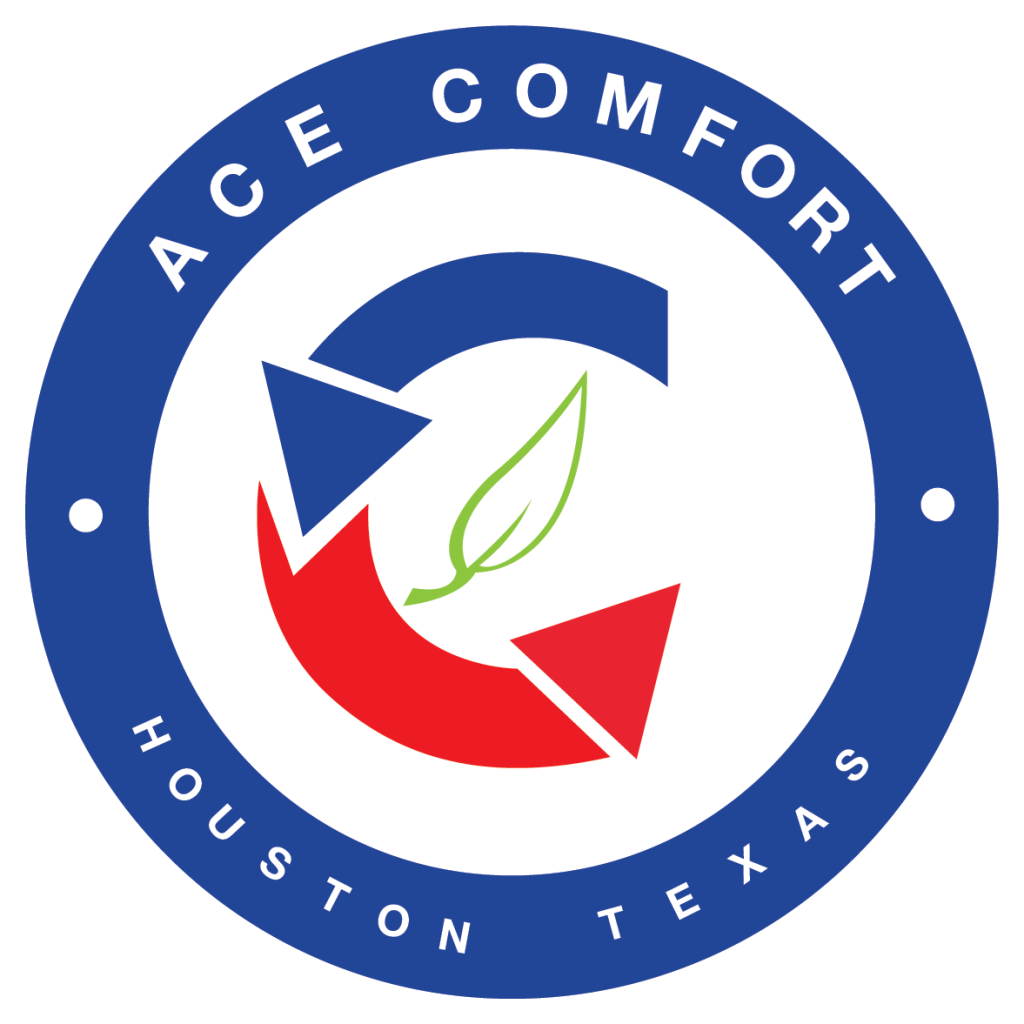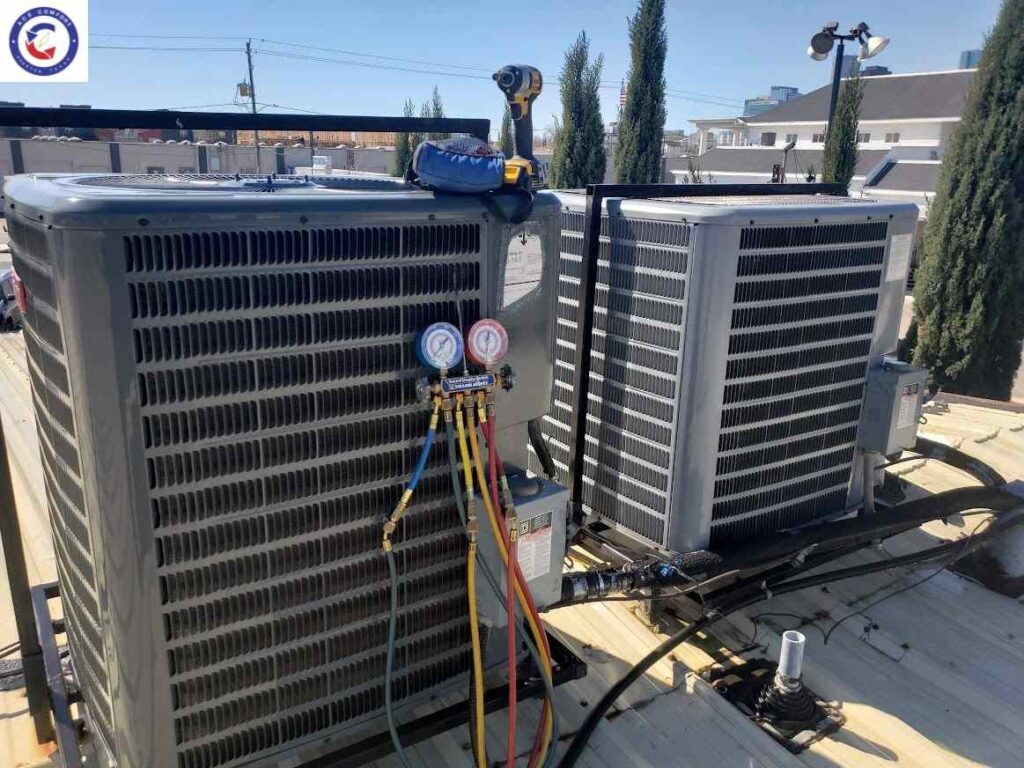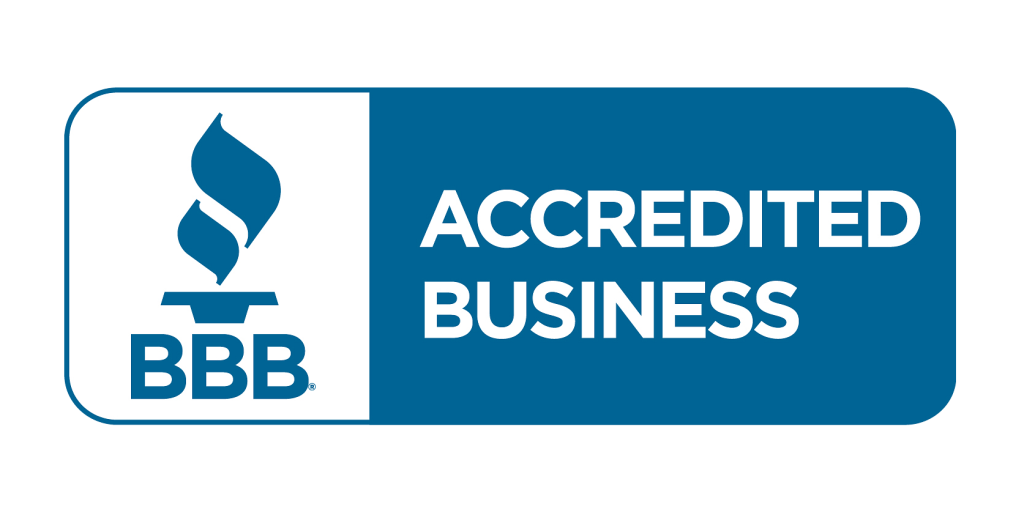Indoor air quality is crucial for your health and comfort, especially in Houston’s humid climate. Poor air quality can trigger respiratory issues and allergies, often worsened by heating systems that stir up dust and allergens. To improve air quality, change your HVAC filters every 1-3 months, use dehumidifiers, and ensure proper ventilation. Be mindful of common indoor pollutants like pet dander and volatile organic compounds from cleaning products. Incorporating air purifiers can help, too. Stay proactive about maintenance, and you’ll breathe easier at home. Keep exploring to discover more tips for a healthier indoor environment.
Key Takeaways
- Houston’s high humidity and pollutants make maintaining indoor air quality essential for respiratory health and comfort.
- Regular maintenance of heating systems prevents dust and allergens from circulating indoors.
- Change HVAC filters every 1-3 months to improve air quality and reduce allergens.
- Use dehumidifiers to keep humidity levels between 30-50%, preventing mold growth.
- Consider air purifiers and clean ducts to further enhance indoor air quality and reduce pollutants.
Importance of Indoor Air Quality
Your home’s indoor air quality plays a crucial role in your overall health and comfort. In Houston, where humidity and pollutants can be high, maintaining good indoor air quality is essential. Poor air quality can lead to respiratory issues, allergies, and other health problems.
So, it’s vital to pay attention to the factors affecting your indoor environment. One key aspect is your heating system air quality. If your system isn’t well-maintained, it can circulate dust, allergens, and other contaminants throughout your home.
Regularly changing your air filters and scheduling professional maintenance can help keep your system running efficiently and improve air quality.
To further enhance indoor air quality in Houston, consider using air purifiers. These devices can effectively reduce pollutants, ensuring the air you breathe is cleaner.
When selecting an air purifier, look for models with HEPA filters, as they capture a high percentage of airborne particles. For more tailored advice, check out air purifier tips in Harris County, which can guide you in choosing the right unit for your needs.
How Heating Affects Air Quality
Heating systems can significantly impact indoor air quality, especially during colder months when homes are sealed tight against the elements. When you turn on your heating, dust, allergens, and other contaminants that have settled in your home can get stirred up and circulated throughout the space. This can lead to an increase in respiratory issues, allergies, and other health problems.
Moreover, many heating systems, particularly older ones, can contribute to poor air quality by releasing pollutants. If your system isn’t properly maintained, it mightn’t filter air effectively, allowing harmful particles to enter your living areas. Additionally, gas-powered heating systems can produce carbon monoxide if not vented correctly, posing serious health risks.
To improve the air quality in your home during the heating season, consider scheduling regular maintenance for your heating system. You should also change your air filters frequently and check for any leaks or issues.
Using air purifiers can help reduce airborne particles, and ensuring proper ventilation will allow fresh air to circulate. By taking these steps, you can enjoy a warm home without compromising your indoor air quality.
Common Indoor Air Pollutants
Indoor air can often be more polluted than outdoor air, making it crucial for homeowners to understand common indoor air pollutants. One of the biggest culprits is dust. It can accumulate in your home, especially during heating season, and aggravate allergies and respiratory issues.
Then there are volatile organic compounds (VOCs), which are emitted by everyday products like paints, cleaners, and aerosol sprays. These can lead to headaches, dizziness, and long-term health problems.
Another significant pollutant is mold, which thrives in damp areas of your home. It can cause severe health issues, particularly for those with asthma or weakened immune systems.
You should also be aware of pet dander, which can trigger allergic reactions and asthma attacks.
Carbon monoxide is another serious concern, primarily from gas appliances and heaters. This colorless, odorless gas can be deadly in high concentrations.
Lastly, tobacco smoke can linger in the air, affecting both smokers and non-smokers alike. By recognizing these common pollutants, you can take steps to protect your indoor environment and improve your overall health.
Tips for Improving Air Quality
Improve your home’s air quality by implementing a few simple strategies. Start by regularly changing your HVAC filters. A clean filter traps dust, allergens, and pollutants, ensuring they don’t circulate through your home. Aim to replace filters every 1-3 months, especially during peak heating season. If your HVAC system is old and inefficient, consider air conditioning replacement to ensure better performance and air quality. Upgrading your system can help you maintain a cleaner, healthier environment while improving overall energy efficiency.
Next, consider using a dehumidifier. High humidity levels can promote mold growth and dust mites, which can worsen indoor air quality. Keeping humidity between 30-50% helps create a healthier environment.
Ventilation is crucial, too. Open windows when weather permits to let fresh air in, or use exhaust fans while cooking and bathing to remove excess moisture and odors.
Incorporate indoor plants which can naturally filter air pollutants. Spider plants, peace lilies, and snake plants are great options that require minimal care.
Lastly, limit the use of harsh chemicals. Opt for natural cleaning products and avoid smoking indoors.
These small changes can significantly enhance your indoor air quality, making your home a healthier place to live. By taking these steps, you can breathe easier and enjoy a more comfortable indoor environment.
Benefits of Air Purifiers and Clean Ducts
Investing in air purifiers and maintaining clean ducts can significantly enhance your home’s air quality. Air purifiers actively filter out dust, allergens, and pollutants, providing you with cleaner, fresher air to breathe.
They’re particularly beneficial during heating season when indoor air can become stagnant and filled with contaminants. With a good air purifier, you can reduce the risk of respiratory issues and allergies, making your home a healthier environment for you and your family. If you’re unsure which air purifier is right for your home, an experienced air conditioning contractor can provide guidance and help you select the best option for your needs.
Clean ducts are equally important. Over time, dust, mold, and debris accumulate in your ductwork, which can circulate harmful particles throughout your home.
Air Conditioning Contractor in Houston, TX Offers Tips on Improving Indoor Air Quality
At Ace Comfort Air Conditioning & Heating, we understand how crucial indoor air quality is for both your health and comfort. In Houston’s climate, it’s important to know how your heating system can impact the air you breathe. By identifying common pollutants and taking proactive steps like regular maintenance, improving ventilation, and using air purifiers, you can create a healthier home environment. Don’t underestimate the power of clean air—protect your family and enjoy a fresher, more comfortable living space all year long!
Ace Comfort Air Conditioning & Heating
1504 Rothwell St, Houston, TX 77002
(281) 658-5141








